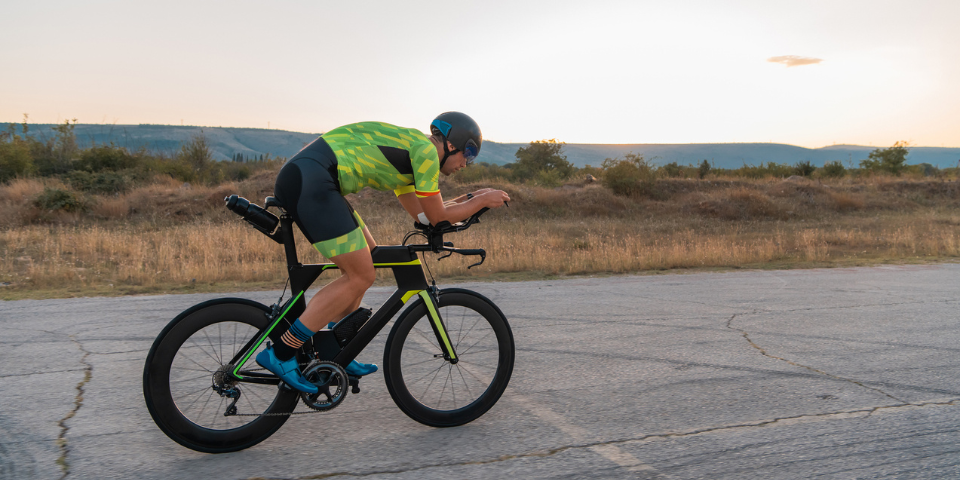When you’re parched, chugging water is the perfect thirst-quencher. It has no calories, and it hydrates you. The only problem? Plain old water can be boring when you’re craving some flavor and excitement, especially after a hard workout. Fortunately, sugar-loaded drinks aren’t your only alternative to standard-issue H2O.
Here are some sugar-free and no sugar drink options that are easy to find — even in your office’s soda machine or local Starbucks.
1. Sparkling Water
“It’s important to remember that you want to eat your calories, not drink them as a general rule,” explains Andrea N. Giancoli, MPH, RD. Sparkling water is like water’s more exciting, bubbly sister.
“Carbonated water (e.g., seltzer, sparkling water) is a fine alternative to the still stuff. Flavored seltzers for the most part are great,” says Michele Promaulayko, author of Sugar Free 3. “Just read the label to make sure there are no calories, no added sugars, or artificial sweeteners.” LaCroix is one option that is free of sugars, calories, sodium, and artificial ingredients.
2. Infused Water

There are tons of infused water products. The tricky part is choosing one without hidden sugar. Hint is flavor-infused water that offers all the benefits of agua without sugar or sweeteners.
3. Tea
“A cup of herbal tea is part of my nightly wind-down — I do ginger, lemon, licorice, or peppermint,” Promaulayko says. There are tons of options, so you can pick and choose your favorite flavor!
“You can drink unsweetened tea,” says Giancoli. “Or you can sweeten it with stevia, which has no calories.” Research has found natural, no-calorie sweeteners, such as stevia, to be safe and can be a healthy part of a balanced diet in moderation.
4. Matcha

Black, green, and herbal teas have antioxidants. Matcha has become a trendy green tea because it has a unique growing process to boost its health benefits. On its own, matcha green tea powder has very few calories and no sugar, but once you start turning it into lattes and other beverages, that changes. Lots of sugar and calories may be hiding out in those yummy matcha drinks.
“Many coffee and matcha tea drinks add sugar to reduce the bitterness,” Promaulayko says. So just make sure you pay attention to what’s actually in your drink!
5. Coffee
“Packed with natural antioxidants, black coffee is looking more and more like a health elixir in the eyes of modern science, and the natural caffeine gives your system a natural boost — mentally and physically,” Promaulayko says.
However, when it comes to hitting up your local coffee chain, three pumps of vanilla syrup in a latte can add a whopping amount of sugar, well over the 25-gram upper limit per day. A safer bet is sticking to coffee or cold brew without added sugar — and adding a minimal amount of dairy milk or whatever plant-based milk you use. “I take mine with a little milk and stevia,” Promaulayko says.
6. Sports Drinks

“Energy drinks and sports drinks are some of the emptiest braggarts about the energy and nutritional benefits of sugar,” Promaulayko says. “Don’t get me wrong. There are times when these drinks can be beneficial. But couch surfers and weekend gym warriors shouldn’t fool themselves. To your body, it’s essentially getting pretty colored sugar water.”
Sports drinks are designed to help replenish electrolytes and support hydration during intense exercise, but many of them contain lots of added sugar. A new generation of sports drinks have flipped the sugar-heavy formula by adding sweetness with stevia, or other no-calorie sweeteners.
Don’t Be Fooled by Juice
“With fruit juice, the fiber is gone, so the sugars hit your bloodstream unregulated,” Promaulayko says. Plus, green, fresh-squeezed, and organic juices have higher concentrations of natural sugars than you might expect.
What’s more, many juice drinks are loaded with extra sugar. “Whole fruits have naturally occurring sugar, but many ‘juice’ drinks add sugar or have very little real fruit in them,” says Giancoli.
What About Alcohol?
Don’t be fooled by hard seltzers that boast their low sugar content. When you consume these beverages, you’re just trading calories from sugar for those from alcohol. These drinks may be low in or contain no added sugar, but you’re still adding to your daily calorie intake.
“As far as your body is concerned, alcohol behaves similarly to a sugar or a refined carb — it’s just empty calories,” Promaulayko says. “And your body will use it as an energy source rather than burning fat.”







